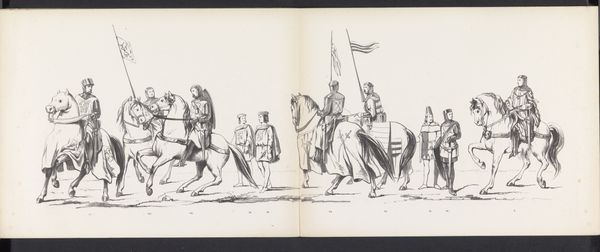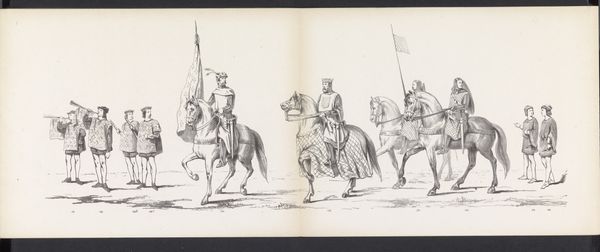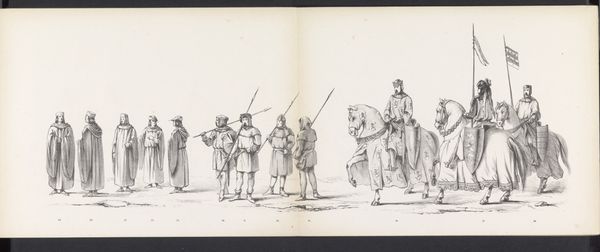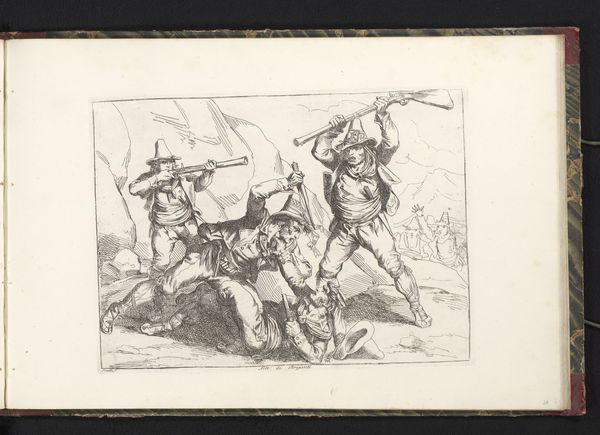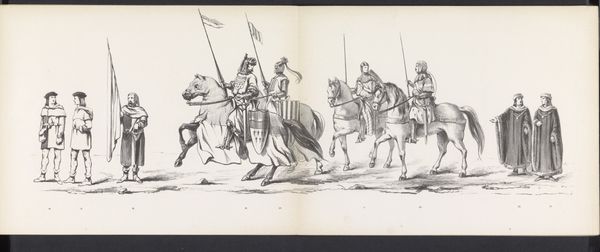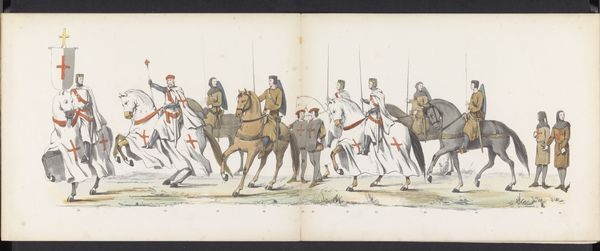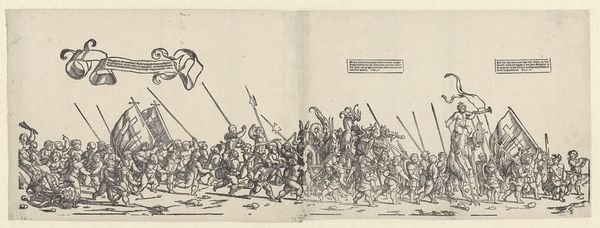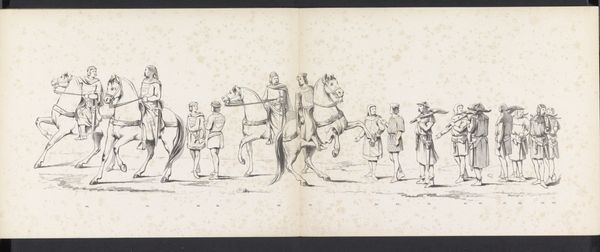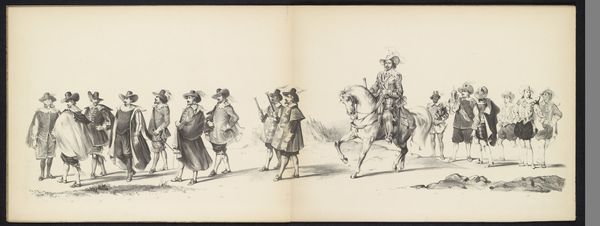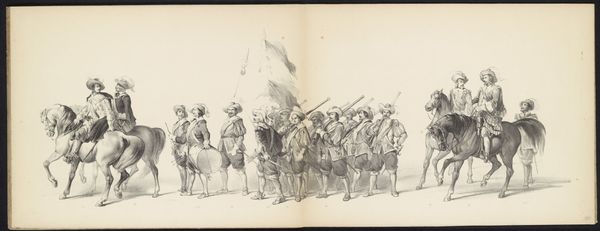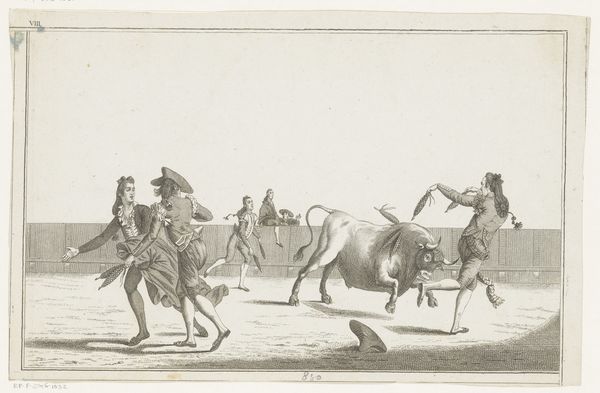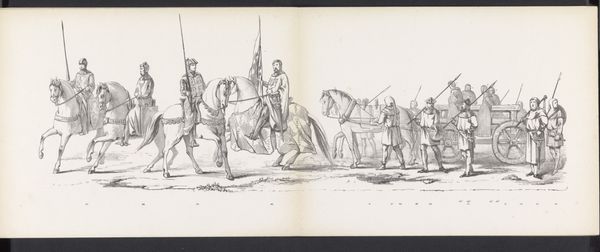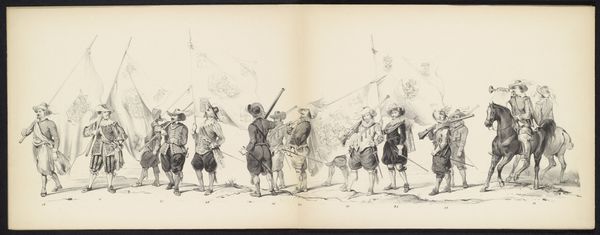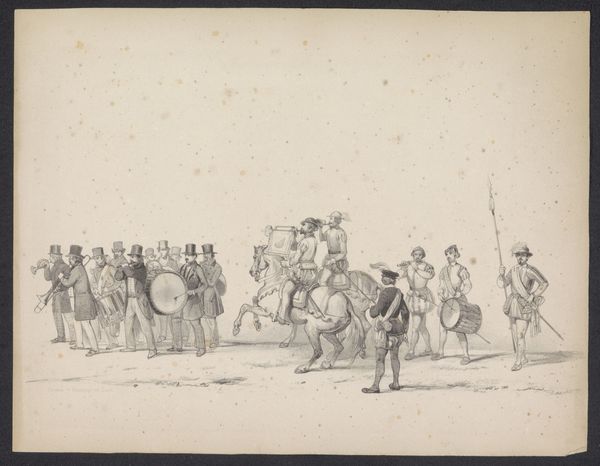
Maskerade van de Leidse studenten, 1865 (plaat 8) 1865
0:00
0:00
Dimensions: height 275 mm, width 720 mm
Copyright: Rijks Museum: Open Domain
Jan Daniël Cornelis Carel Willem baron de Constant Rebecque created this lithograph in 1865, depicting the masquerade of the Leiden students. Lithography is a printmaking technique that relies on the chemical repulsion between oil and water. The artist draws on a stone or metal plate with a greasy crayon, then treats the surface so that ink adheres only to the drawing. The resulting print is a mirror image of the original. Here, the lithographic process captures the texture and detail of the parade, from the costumes of the students, the caparisons of the horses, to the cobblestones underfoot. The labor involved in producing a lithograph is considerable; each print requires careful preparation and precise execution. The print’s existence as a multiple also speaks to the rise of mass media and the democratization of art in the 19th century. By understanding the materials and methods involved, we can appreciate how the work reflects both artistic skill and broader social and economic forces at play.
Comments
No comments
Be the first to comment and join the conversation on the ultimate creative platform.
